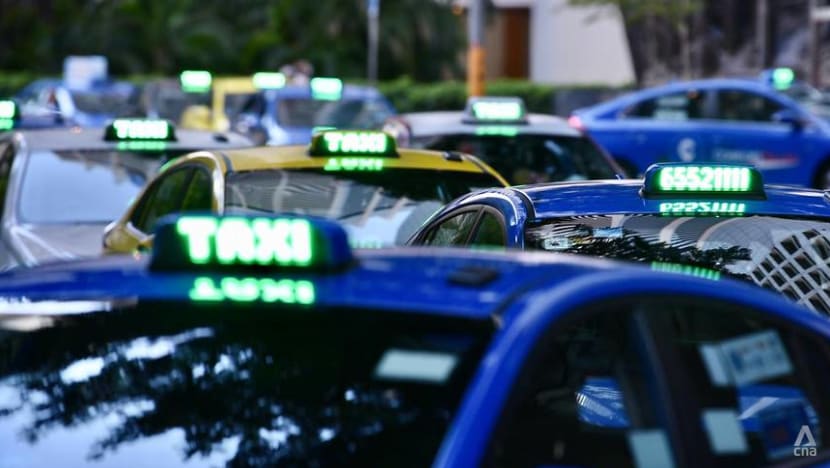Number of taxi, private-hire drivers grew ‘much faster’ than ridership, resulting in lower earnings: Amy Khor
Some drivers have seen an over 30 per cent fall in earnings in the past six months, said Member of Parliament Desmond Choo.


This audio is generated by an AI tool.
SINGAPORE: With the recent increase in taxis and private-hire cars, the earnings of these drivers have “moderated” as passenger demand has not risen as much, said Senior Minister of State for Transport Amy Khor.
Between the second quarter of 2023 and the second quarter of this year, the number of active private-hire cars and taxis rose by 8 per cent. However, the average daily number of passenger trips increased by only 1 per cent during the same period.
“That obviously means that some drivers will see a decline in earnings,” Dr Khor said in parliament on Tuesday (Sep 10) in response to questions about supply and demand in the point-to-point transport sector.
She noted that average surge prices and net ride-hail fares had declined in the first half of 2023 from a peak at the start of that year. Prices are now back to levels seen in the first half of 2022.
This echoes the concerns of private-hire car drivers that CNA spoke to last month. Grab and Gojek drivers said they noticed a dip in their incomes over the past six months, citing factors such as a fall in the number of passengers, as well as an increase in competition from other platforms.
Grab said at the time that the income dip is "seasonal".
Dr Khor said on Tuesday that point-to-point fares are also subject to seasonal fluctuations in demand.
She noted, for instance, that in months when there are major events such as the Taylor Swift and Coldplay concerts, or during festive periods such as Chinese New Year, there tends to be an increase in travel among locals and visitors, which leads to higher demand and higher fares.
“Conversely, demand tends to decline during the school holidays when many Singaporeans are abroad,” she said. “These seasonal effects are another source of fluctuations in drivers’ income.”
FARES DECIDED BY DEMAND AND SUPPLY
While the authorities watch developments in the point-to-point sector closely, they do not set fares as these are determined by transport operators based on market competition, said Dr Khor.
“We also do not cap the number of P2P (point-to-point) drivers, but instead allow the supply of P2P drivers to move in tandem with commuter demand and price signals,” she said.
Thus, the appropriate level of supply for the sector depends on commuter demand and the fares they are willing to pay, she said.
"When demand is higher and fares increase, we can expect more drivers to enter the market. Conversely, when there is excess supply of drivers, fares will drop and some drivers may decide to exit the market," she added.
MP Desmond Choo (PAP-Tampines) asked Dr Khor on her ministry’s views on how they can support drivers during periods of contracted low fares, where anecdotally, some drivers have reported an over 30 per cent drop in earnings in the past six months.
She responded that this dip in earnings needs to be taken “into context” - that there were periods such as at the end of the COVID-19 pandemic in 2022, as well as during festive periods and concerts early this year, where demand was high and drivers earned more.
“Hence, I think it is really important to really look at the total earnings across time instead of just lower fare periods,” she said.
Dr Khor added that the Land Transport Authority (LTA) will continue to look at ways to support the “smooth and efficient functioning of the market”.
These include measures to reduce operating costs, such as the extension of statutory lifespan for taxis which was announced earlier this year.
“The operators should pass through these cost savings to drivers via lower rentals,” she said.
LTA has also stepped up enforcement against foreign vehicles providing illegal point-to-point services which affect demand.



















